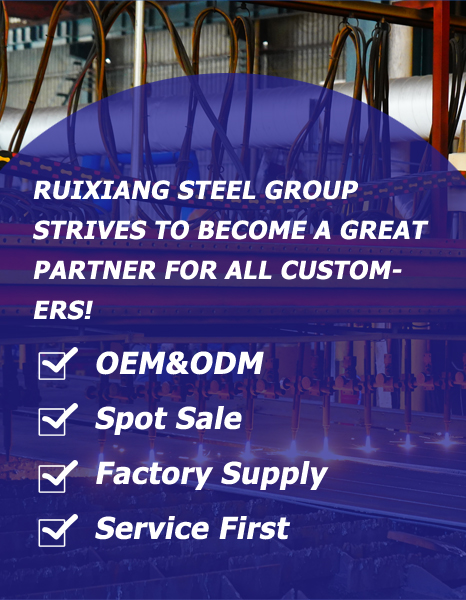The Environmental Benefits of Recycling Steel and Using Recycled Content
 Click:636Edit: Admin
Click:636Edit: Admin Time:2025-10-04 18:27:30
Time:2025-10-04 18:27:30
The Environmental Benefits of Recycling Steel and Using Recycled Content
Steel recycling stands as a cornerstone of modern sustainable industrial practices, offering profound environmental advantages that extend far beyond simple waste reduction. As a responsible leader in the steel industry, Ruixiang Steel Group is committed to promoting and implementing recycling practices that contribute significantly to environmental protection and resource conservation, while providing clients with high-quality recycled steel products that meet their performance requirements.
Conservation of Natural Resources
The most immediate benefit of steel recycling lies in its remarkable ability to conserve precious natural resources. Every ton of recycled steel saves substantial raw materials, significantly reducing the environmental impact of mining operations. According to industry data, recycling one ton of steel conserves:
1,400 kg of iron ore
740 kg of coal
1.4 tons of iron ore (as noted in another source)
300 kg of limestone
This conservation is particularly crucial given that iron ore, the primary raw material for steel production, is a finite resource. By utilizing recycled steel, we significantly reduce the need for mining operations, which often involve extensive land disruption, habitat destruction, and substantial water usage. The preservation of these natural resources ensures their availability for future generations while maintaining ecological balance.
Energy Efficiency and Emissions Reduction
Steel recycling demonstrates exceptional energy efficiency compared to primary steel production. The recycling process requires approximately 60-74% less energy than producing steel from raw materials. This substantial energy saving translates directly into reduced greenhouse gas emissions, with every ton of steel recycled preventing the release of approximately 1.5-1.6 tons of carbon dioxide into the atmosphere.
The environmental advantages extend beyond climate change mitigation. Compared to traditional iron ore processing, steel recycling contributes to:
76% reduction in water pollution
86% reduction in air pollution
72% reduction in solid waste generation
These reductions significantly lessen the environmental footprint of steel production, contributing to cleaner air and water in industrial regions.
Waste Reduction and Circular Economy
The steel industry's recycling achievements have made substantial impacts on global waste management. Steel stands as one of the most recycled materials globally, with recycling rates exceeding 85-90% in many applications. This exceptional recyclability positions steel as a model material in the circular economy.
Unlike many other materials, steel can be recycled repeatedly without degradation of its properties, creating a continuous lifecycle that minimizes waste generation. From initial production through use and eventual recycling, steel maintains its structural integrity through multiple lifecycles, with an estimated 8-30 year cycle depending on the application.
The Bigger Picture: Cumulative Impact
The cumulative benefits of steel recycling create a powerful positive impact on our planet. From 1994 to 2013, China's utilization of 1.08 billion tons of scrap steel resulted in significant environmental savings, including:
4.6 billion tons of ore that didn't need to be mined
1 billion tons of standard coal conserved
1.7 billion tons of carbon emissions reduced
These staggering figures demonstrate how steel recycling contributes to sustainable industrial development on a global scale.
Ruixiang Steel Group's Commitment to Sustainability
At Ruixiang Steel Group, we integrate recycling into every aspect of our operations, recognizing that environmental responsibility and business success are fundamentally interconnected. Our commitment extends beyond compliance to active leadership in sustainable steel production through:
Utilizing advanced sorting technologies to maximize recycling efficiency
Implementing closed-loop systems for production waste
Partnering with suppliers and customers to optimize material lifecycle
Investing in research and development to enhance recycling technologies
As global demand for steel continues to grow, particularly in developing economies, the environmental benefits of recycling become increasingly critical. By choosing recycled steel from responsible suppliers like Ruixiang Steel Group, industries can meet their material needs while minimizing ecological impact, building a sustainable future while supporting the world's growing need for steel products.
 Click:636Edit: Admin
Click:636Edit: Admin Time:2025-10-04 18:27:30
Time:2025-10-04 18:27:30

